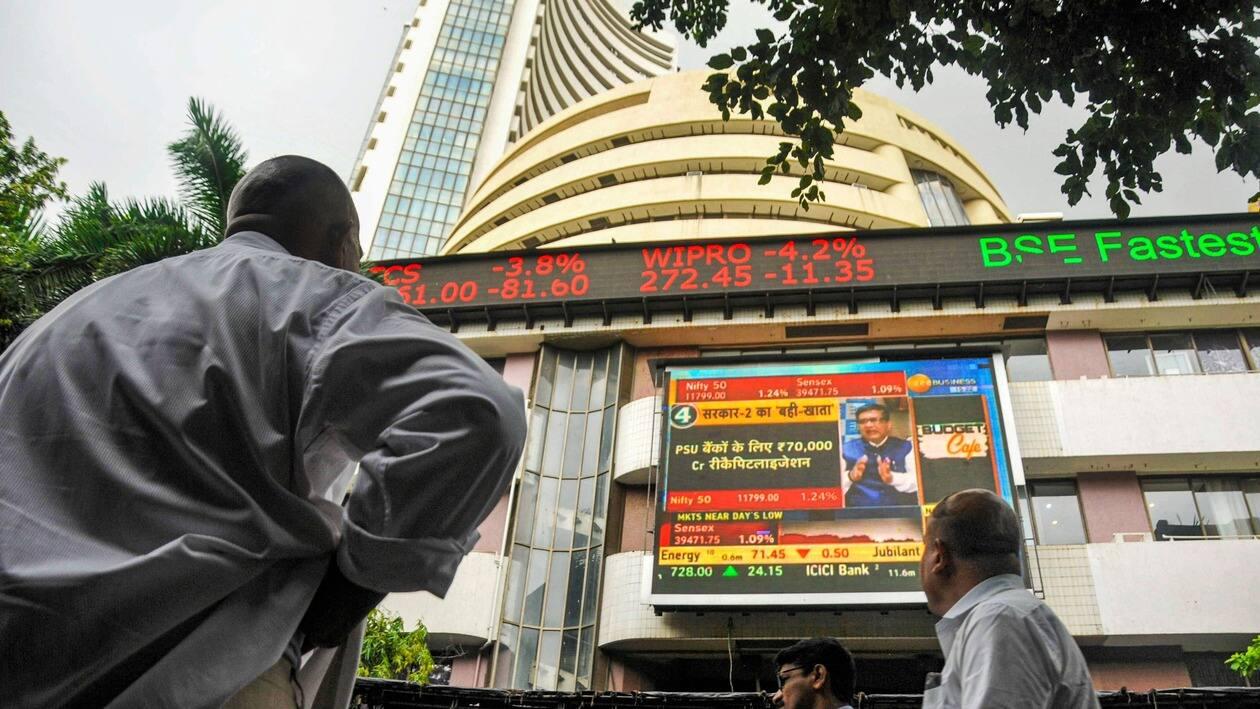At a time when most world markets have remained under pressure, Indian equity markets maintained their bull run by setting new highs, aided by a strong rally in the banking and auto stocks, the return of FPIs, and a drop in crude oil prices.
On Friday, November 25, the S&P BSE Sensex index rose 0.28 percent to hit a record high of 62,447, surpassing its previous high of 62,412, set on November 24, while the Nifty50 reached a new 52-week high of 18,534.90.
The Sensex has risen 2.51 percent this month after a nearly 5.5 percent rally in the preceding month, while the Nifty50 has produced a return of 2.78 percent in the current month after a 5.37 percent rally in the month before.
Stocks from the banking, auto, FMCG, and metals sectors provided significant support for the indices to hit record highs. Over the last two quarters, most banks have reported improved performance as a result of the acceleration in credit growth.
YTD, the Nifty PSU Bank index stood as the top-performing index among all NSE indices with a rally of almost 60 percent, followed by Nifty Bank and Nifty Auto with gains of over 21.4 percent and 18.49 percent, respectively.
On the other hand, FPIs made a strong comeback and invested a net sum of ₹31,630 crore in Indian equities during the November 1–25 period. In comparison, there was a net outflow of ₹8 crore and ₹7,624 crore in October and September, respectively, PTI reported, quoting depositories' data.
In August, FPIs were net buyers to the tune of ₹51,200 crore, and they purchased equities worth nearly ₹5,000 crore in July. Prior to this positive trend, FPIs were net sellers for nine consecutive months beginning in October 2021.
Meanwhile, crude oil prices have corrected by almost 10 percent in the current month so far as the outlook for oil demand was clouded by an increase in Covid-19 cases in China, the world's largest crude importer, and the impending European ban on Russian oil alongside the G7 nations' price cap plan.
Brent crude futures settled 4.23 percent lower at $83.90 a barrel in the last week. West Texas Intermediate (WTI) closed 4.78 percent lower at $76.28 a barrel during the same period. At current levels, crude oil prices are trading at an 11-month low.
The US dollar index, which gauges the greenback's strength against a basket of six currencies, fell by 0.81 percent last week and 4.73 percent so far this month. The latest Fed meeting minutes showed that a substantial majority of policymakers agreed it would soon be appropriate to slow the pace of interest rate hikes while pointing to increased recessionary risks, according to Trading Economics.
The outstanding performance of Indian equity has certainly raised the question: have Indian markets become expensive?
In the last week, global brokerage house Goldman Sachs, in its outlook for India, said that it sees the benchmark Nifty50 hitting 20,500 by December 2023, implying an upside of 12 percent from current levels. The brokerage also noted that India is unlikely to outperform its peers in 2023 due to expensive valuations.
The Indian market has been a strong outperformer thanks to "stronger domestic fundamentals," but valuations have turned expensive compared to global peers, it pointed out. India has outperformed China for two years in a row and could underperform going forward, it added.
The brokerage stated that amid a challenging global macro environment, Indian equities have significantly outperformed the MSCI Asia ex-Japan region by 18 percent year-to-date and more than 40 percent in USD terms since last year, due to stronger domestic fundamentals.
Domestic brokerage firm Prabhudas Lilladher has raised Nifty's next 12-month target to 21,035 from 20,936 earlier, implying a 15.8 percent upside from the current levels, as it believes India's long-term growth story remains intact notwithstanding near-term volatility.
The brokerage firm is "overweight" on autos, banks, IT services, capital goods, and healthcare. It is "underweight" on metals, cement, consumer, oil, gas, and NBFC.
Disclaimer: The views and recommendations made above are those of individual analysts or broking companies, and not of MintGenie.
